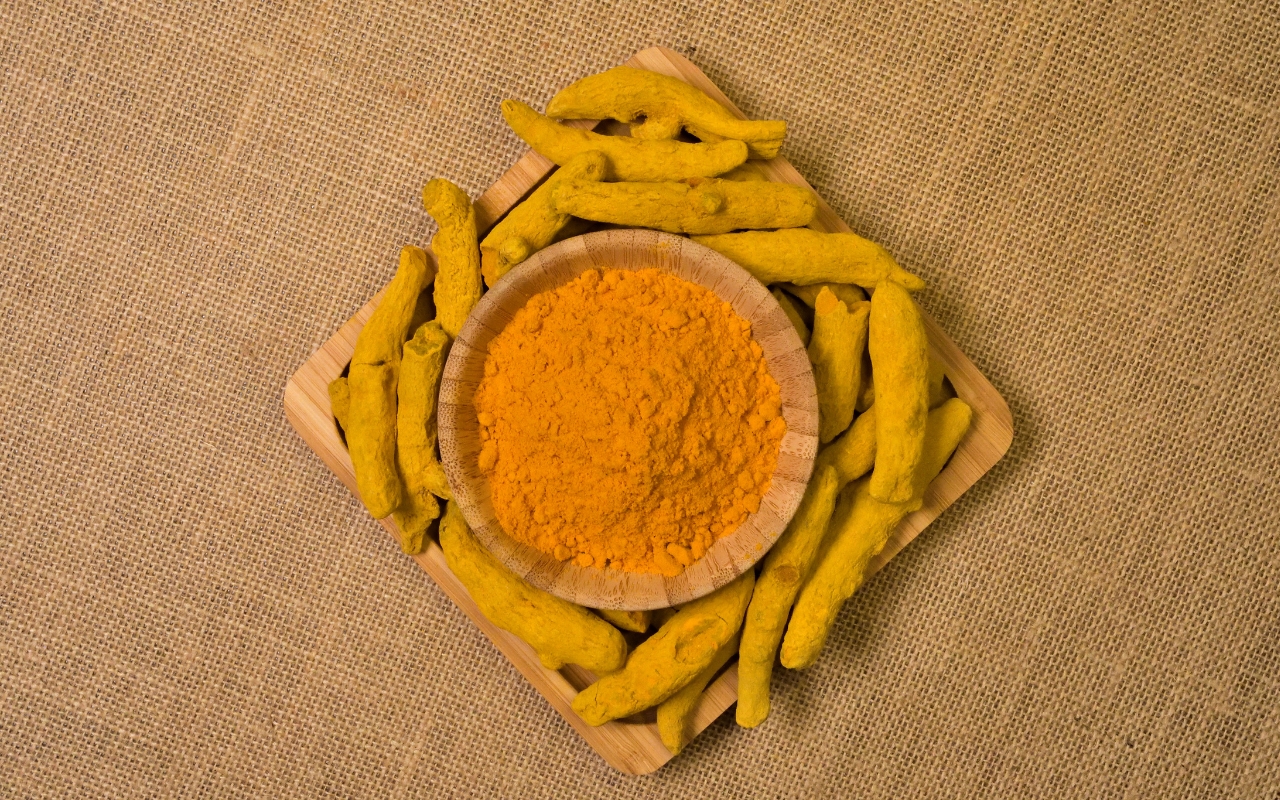Turmeric, a golden-hued spice derived from the rhizomes of the Curcuma longa plant, has long been revered in traditional medicine, particularly in Ayurveda and Chinese medicine. Over the past decade, the West has embraced this vibrant spice, recognizing its potential benefits for a myriad of health concerns, especially joint health. The active component responsible for turmeric's healing prowess is curcumin, a potent anti-inflammatory and antioxidant compound. This article delves into the remarkable benefits of turmeric for joint health, substantiated by scientific research and expert insights.
Turmeric's potential in alleviating joint pain primarily hinges on its anti-inflammatory properties. Chronic inflammation is a hallmark of various joint disorders, including osteoarthritis and rheumatoid arthritis. By mitigating inflammatory responses, turmeric can provide pain relief and improve joint function.
Understanding the Science Behind Turmeric
The efficacy of turmeric in joint health is largely attributed to curcumin. Studies have shown that curcumin inhibits the activity of several inflammatory mediators, such as cytokines and enzymes like cyclooxygenase-2 (COX-2). These mediators play a significant role in the pathogenesis of joint inflammation and pain.
Research published in the Journal of Medicinal Chemistry highlights curcumin's ability to modulate multiple cellular signaling pathways, thereby reducing inflammation and oxidative stress in the joints. Moreover, curcumin's antioxidant properties help in neutralizing free radicals, which are unstable molecules that can cause cellular damage and accelerate the aging process, including in joint tissues.
Clinical trials have further supported the efficacy of turmeric in improving joint health. A notable study conducted on individuals with knee osteoarthritis demonstrated that supplementing with curcumin led to significant reductions in pain and improvements in knee function compared to a placebo group. This suggests that curcumin can be a viable alternative to nonsteroidal anti-inflammatory drugs (NSAIDs), which are often associated with adverse side effects when used long-term.
Turmeric in Osteoarthritis Management
Osteoarthritis is the most prevalent form of arthritis, characterized by the gradual degradation of cartilage in the joints. This degeneration leads to pain, stiffness, and reduced mobility. Conventional treatment for osteoarthritis often involves pain management through NSAIDs, physical therapy, and, in severe cases, surgery. However, these interventions may not be suitable or effective for everyone, prompting the search for natural alternatives like turmeric.
A randomized trial published in the Annals of Internal Medicine investigated the effects of curcumin extract on knee osteoarthritis patients. The study found that those who received curcumin supplementation experienced comparable pain relief and functional improvement to those treated with ibuprofen, a commonly prescribed NSAID. Importantly, curcumin was well-tolerated, with fewer gastrointestinal complaints reported, which are a common side effect of NSAIDs.
Turmeric in Rheumatoid Arthritis Treatment
Rheumatoid arthritis (RA) is an autoimmune disorder where the body's immune system mistakenly attacks the synovium, the lining of the membranes surrounding the joints. This results in inflammation, pain, and joint deformation over time. Managing RA typically involves immunosuppressive drugs and anti-inflammatory medications, which can have significant side effects.
Curcumin has shown promise as an adjunct therapy for RA. Animal studies have demonstrated that curcumin can modulate immune responses and reduce inflammatory markers associated with RA. Furthermore, a pilot clinical trial revealed that curcumin supplementation led to a reduction in joint swelling and tenderness in RA patients, along with an improvement in overall disease activity scores. These findings suggest that curcumin could complement conventional RA treatments, potentially reducing the required dosages of prescription medications and their associated risks.
How Long Does Turmeric Take to Work?
When considering turmeric for joint health, it's essential to understand that the time it takes to observe noticeable benefits can vary among individuals. Factors such as the severity of the condition, dosage, and bioavailability of the curcumin supplement play crucial roles.
Research indicates that patients may start to experience relief from joint pain and improved mobility after about 6 to 8 weeks of consistent supplementation. However, individual responses can vary. The key is to maintain a regular intake and follow the recommended dosage guidelines provided by healthcare professionals or supplement manufacturers.
Enhancing Turmeric's Bioavailability
A significant challenge with curcumin is its poor bioavailability, meaning that it is not easily absorbed by the body. To counter this, several strategies have been developed to enhance curcumin's absorption and efficacy.
One common approach is to combine curcumin with piperine, an alkaloid found in black pepper. Piperine has been shown to increase curcumin absorption by up to 2,000%, making it a popular addition to many curcumin supplements. Additionally, formulations that utilize liposomal curcumin, which encases curcumin in fat molecules, have also demonstrated improved bioavailability.
Another effective method is to consume curcumin with fatty meals, as curcumin is fat-soluble. This can enhance its absorption and provide more significant health benefits.
Combining Turmeric with Other Joint-Friendly Ingredients
To maximize the benefits of turmeric for joint health, it is often recommended to combine it with other synergistic ingredients. This combination approach can provide comprehensive support for joint function and alleviate symptoms more effectively.
For instance, supplements like Performance Lab Flex combine turmeric with ingredients such as Boswellia serrata, glucosamine sulfate, chondroitin, methylsulfonylmethane (MSM), and strontium. These ingredients work together to provide joint lubrication, shock absorption, ligament and tendon support, and relief from pain and stiffness. By addressing multiple aspects of joint health, these combination supplements can offer a well-rounded approach to managing joint conditions.
Practical Tips for Incorporating Turmeric into Your Diet
While supplements are a convenient way to ensure a consistent intake of curcumin, incorporating turmeric into your daily diet can also be beneficial and enjoyable. Here are some practical tips for adding turmeric to your meals:
- Golden Milk: A soothing and nutritious beverage made by blending turmeric with milk (dairy or plant-based), a dash of black pepper, and a sweetener of your choice. This traditional Ayurvedic drink is known for its anti-inflammatory properties and can be enjoyed warm or cold.
- Turmeric Tea: Also known as “turmeric tea,” this beverage is made by boiling turmeric powder or fresh turmeric root in water. Add honey, lemon, or ginger for extra flavor and health benefits.
- Curry Dishes: Turmeric is a staple ingredient in many curry recipes. Adding it to curries not only enhances the flavor but also provides anti-inflammatory benefits.
- Smoothies: Blend a teaspoon of turmeric powder into your favorite smoothie for a nutrient boost. Pair it with pineapple or mango for a delicious tropical flavor.
- Soups and Stews: Turmeric can be added to soups and stews for a warm, earthy flavor. It's especially good in lentil and vegetable soups.
Potential Side Effects and Considerations
Although turmeric is generally safe for most people, it's essential to be aware of potential side effects and interactions, especially when taken in high doses or supplement form. Some individuals may experience gastrointestinal discomfort, such as bloating, gas, or diarrhea. It's advisable to start with a lower dose and gradually increase it to assess your tolerance.
Turmeric can also interact with certain medications, including blood thinners, diabetes medications, and drugs that reduce stomach acid. If you are taking any prescription medications or have a preexisting health condition, it's crucial to consult with a healthcare professional before starting turmeric supplementation.
The Broader Impacts of Turmeric on Overall Health
Beyond joint health, turmeric's extensive range of health benefits makes it a valuable addition to a holistic wellness regimen. Its anti-inflammatory and antioxidant properties have been linked to improved cardiovascular health, enhanced cognitive function, and potential cancer-preventive effects.
For instance, research published in Diabetes Care has shown that curcumin can help prevent type 2 diabetes by modulating insulin resistance and reducing inflammation. Additionally, studies have suggested that curcumin may protect against neurodegenerative diseases such as Alzheimer's by inhibiting the formation of amyloid-beta plaques, which are a hallmark of the disease.
Moreover, curcumin's potential anti-cancer properties have been explored extensively. Laboratory studies have demonstrated that curcumin can inhibit the growth of cancer cells and induce apoptosis (programmed cell death) in various cancer types. While more research is needed to fully understand these effects in humans, the findings are promising and underscore curcumin's potential as a natural therapeutic agent.
Conclusion
Turmeric, with its primary active compound curcumin, offers a natural and effective solution for improving joint health and managing conditions like osteoarthritis and rheumatoid arthritis. The spice's anti-inflammatory and antioxidant properties provide relief from pain and inflammation, making it a valuable alternative or complement to conventional treatments.
Incorporating turmeric into your daily routine, whether through supplements or dietary additions, can yield significant benefits for joint function and overall health. By combining turmeric with other joint-friendly ingredients and enhancing its bioavailability, you can maximize its therapeutic potential.
As with any supplement, it's essential to consult with a healthcare professional, particularly if you have underlying health conditions or are taking medications. With its extensive range of health benefits and minimal side effects, turmeric stands out as a golden remedy for those seeking natural solutions for joint health and beyond.
For further reading and a deeper understanding of turmeric's health benefits, visit Verywell Health and Performance Lab. These resources offer comprehensive insights and are invaluable for anyone interested in harnessing the power of this ancient spice for modern health challenges.








